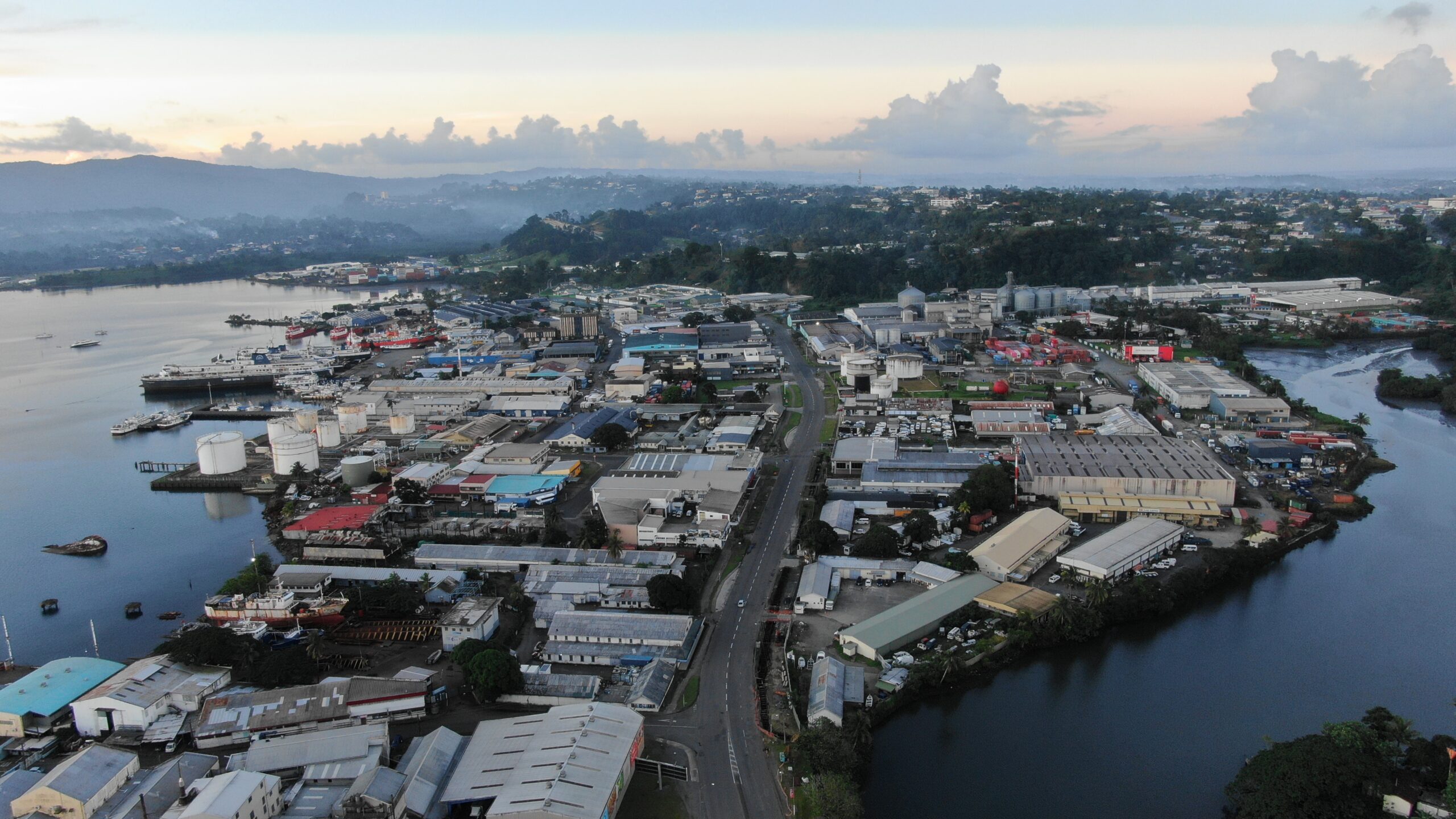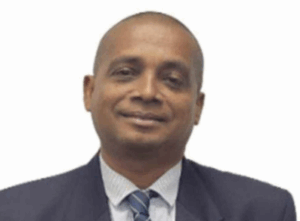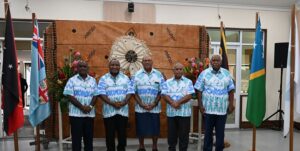How did it get so bad right under our noses? That’s the question many in Fiji are struggling with, as the country reels from an illicit drugs epidemic many thought could only happen in heavily populated urban centres in bigger countries. But a drug many thought could only be afforded by a few wealthy hedonistic locals, has actually developed into a full-blown national crisis that exploded quietly, almost invisible yet in plain sight, deep within their own communities.
Methamphetamine—better known as “ice”—has infiltrated every corner of Fiji society, from rural villages to urban centres to neighborhoods and settlements throughout the country.
It is a crisis that could destabilize a nation, and it’s not just a drug problem; it’s a symptom of something much deeper.
This is a story of systemic failure, institutional decay, and a society struggling with the consequences of decades of political upheaval. A country where even those entrusted with enforcing the law became too cowed to speak. And at the centre of it all is a police force accused of being too compromised to act, leaving ordinary Fijians to pay the price.
The Underground Economy of Ice: Thrived while police focused on marijuana
Methamphetamine has become a lucrative and deeply embedded part of Fiji’s underground economy. The scale of the problem came into sharp focus earlier this year when police raided and seized 4.2 tonnes of meth in Nadi—a haul worth billions of dollars. The people of Fiji woke up that morning to find, to great shock and horror, that meth had been swirling and transiting through Fiji for years and widely used throughout the country. An epidemic that threatened the very fabric of the island nation.
Prior to that, many thought that the drug problem in Fiji was largely confined to marijuana – a locally home grown industry. For years, it seemed the focus of the police force drug fight was raiding and destroying marijuana farms particularly on the island of Kadavu. The public were fed stories about how the marijuana farmers on Kadavu were essentially “drug lords” who had become so sophisticated and “tech savvy” they were using drone jammers to take down police drones.
“It proves that the money is huge and they will take us on with technology,” then Police Commissioner, Brigadier-General Sitiveni Qiliho said in 2021 after another highly publicized raid.
“This year alone (2021) with the $1.6 billion worth of marijuana that we’ve uprooted, it shows the amount of money that is circulating in that industry.”
But while the main attention of police was on marijuana drug farmers on an outer island, meth dealers and users were largely moving around and conducting their business through Fiji’s main urban centres, almost at will. Between 2019 and 2023 Fiji recorded 6,659 drug cases, with marijuana accounting for 94% of cases, while meth and cocaine made up the remaining 6%.
When the 4.2 tonnes of meth were found and the scale of of the meth crisis was laid bare, the public was stunned. What had the police and authorities been doing all this time?
The discrepancy in the number of recorded cases between marijuana and meth over the last 5 years is staggering given what we know now. Meth didn’t just parachute its way to the communities – it has been rising steadily over the years, largely unchecked.
Qiliho was suspended as Police Commissioner in January 2023, and it wasn’t until a year later in January 2024, that Fiji Police finally successfully executed “one of the biggest seizures ever” of meth in Fiji.
It was then that the Fiji public realized that meth had long been going through Fiji and within Fiji without being caught, and had flourished almost freely in-country while attention was driven towards marijuana.
Police officers speaking to Mai TV on the condition of anonymity said they suspect the diversion was deliberate and driven by “some at the top.”
A total of 13 people was charged in relation to the 4.2 tons of meth worth over $2 billion seized in Nadi. The cases are still before the court limiting some of our reporting on the matter. However, the operation was sophisticated, organised, and deeply alarming, and experts say the bust is just the tip of the iceberg.
A dive into the business and assets of people connected and charged with the Nadi drug bust show that they were running various legitimate businesses from nightclubs, kava bars, car washes, barber shops, engine repairs and maintenance and in the music and DJ industry. Photos gleaned from social media show that those charged were rubbing shoulders with government ministers and politically connected individuals.
Renowned Fijian academic Dr. Steven Ratuva, Director of the Macmillan Brown Centre for Pacific Studies at the University of Canterbury in New Zealand argues that meth’s rapid spread is not just about drugs but about a system that has been failing for decades. “This isn’t just an issue of crime. It’s a symptom of deeper societal fractures—poverty, governance failures, and the lingering trauma of Fiji’s political past,” he explains.
How coups cause generations of instability and the conditions for drugs to thrive
Fiji’s drug crisis cannot be understood without looking back at its political history. The country has endured multiple coups, each leaving scars that go far beyond politics.
“Coups aren’t just events—they’re traumas that transform society,” says Dr. Ratuva. “Generations born after these coups inherit the instability. They grow up in broken systems, where opportunities are limited, and frustration is high.”
These “coup-born kids,” as Ratuva calls them, are particularly vulnerable to the allure of methamphetamine. It offers an escape from poverty, stress, and hopelessness. Meanwhile, drug traffickers exploit this vulnerability, embedding themselves in communities where social safety nets and structures have been broken.
This instability caused by coups, according to Ratuva, is quickly exploited by syndicates and commercial interests that steadily attach themselves to the government elites, those in authority and law enforcement – within the police, military and government.
This then creates the conditions and landscape for things such as the drug industry to grow that Ratuva says could see Fiji at risk of becoming a compromised state.
“In South America, they refer to the political system as the narco state, or the narco police, the narco military – because they’ve all been compromised. We don’t want to get there. But if we’re not careful, we will turn out to be another narco state.”
This could lead to a devastating crisis as individuals in top positions that are supposed to be addressing the drug issue, have themselves become involved in the drug trade, and cannot take necessary action because they’re compromised.
The cost of silence
Ratuva says a growing culture of silence and stifling of free speech caused by coups also provide the conditions for the drug trade to thrive.
“What happened since 2006 is that they took away the ability of the public to be able to articulate themselves freely. That was just a perfect environment for drugs to come in, when there was no accountability and there was no one speaking out from the community.”
Sources from within the police and authorities who spoke to Mai TV, would only do so on the condition of anonymity, saying they fear retribution from “from those above them” or that the “issue was too sensitive” to discuss.
Mai TV tried unsuccessfully for almost 3 months to secure an interview with police, before we finally decided we would go to print and then to air with this story.
Despite sending them our questions for the interview, we were passed from one senior police officer to another, interviews that were confirmed got cancelled or deferred, and there was a general run around to avoid the interview, even with the best efforts of the police media team. Essentially, we could not get a senior police officer to speak to us on the record for over 12 weeks.
“We’re seeing the cost of silence,” says Vani Catanasiga, who heads the Fiji Council of Social Services. “When institutions fail to protect people, when leaders ignore the warning signs, this is what happens. We’re now dealing with the spillover of decades of neglect.”
“When you look back at how some of our institutions were weakened by the coup, the vanua, the silencing of churches, civil society sector – inhibiting their ability to do their work and advocate, these all contributed to the growth of the drugs industry in Fiji.”
“It is a lesson in good governance, a lesson in human rights, that anytime we infringe on the rights of people, infringe on the rights of institutions, when we refuse to create enabling civic space, we weaken the safety nets and create the environment for problems to spill over.”
Fantasy Island and Motorex: Coincidence, pattern or false flags
As per charges laid by police, the 4.2 tonnes of meth seized this year had been off-loaded from a yacht, transported by barge and moved through private marinas, warehouses and homes in Nadi.
Two places mentioned by police that the containers of drugs allegedly passed through has raised eyebrows – Fantasy Island and Motorex Business Centre.
Police said the drug shipment landed on a private marina on Fantasy Island on 23rd December 2023 and then was moved to a warehouse at the Motorex Complex on 29th December before it was taken to a house in Legalega.
This caught some people’s attention as former Police Commissioner Brigadier General Sitiveni Qiliho was alleged to have some interests with certain development projects on Fantasy Island and had opened the Fantasy Road Business Park development’s new sales office in February 2016.
Then in April 2016, Qiliho, while still Police Commissioner had also opened the Motorex Complex in Nadi, the same place where the 4.2 tonnes of meth were taken to and stored before it was moved to Legalega where police eventually raided.
“With this sort of investment, it will reduce unemployment and decrease crime,” Qiliho had said in April 2016 when he opened the complex.
Chiefs of Police opening commercial projects and developments may seem odd and it may seem a strange coincidence, but the connection alone does not prove any involvement and questions could not be sent to Qiliho as he is currently serving a prison sentence for abuse of office.
But a Facebook post by senior military officer Brigadier General Manoa Gadai – Commander of the Joint Task Force – in January 2023 after the seizure of the 4.2 tonnes startled everyone.
Posting a photo of Qiliho in police uniform, Gadai wrote in Fijian vernacular: “I remember a joint drug operation between OC Delta Coy and Nadi Police with regards to drugs coming through Fantasy Island. Just as we were about to enter and raid the drug cartel on Fantasy Island, we got a call from Qiliho for us to F… off from there and get away from there. I told him this was a joint operation between us and Nadi Police but he swore and verbally abused them. This is why there is a lot of drugs in Fiji…”
Gadai later deleted the post and efforts to interview him proved futile as we were referred to the military.
In an interview with Mai TV, Fantasy Island owner Abbas Ali slammed Gadai for what he termed reckless and irresponsible behaviour. Ali also cast doubts about the accuracy of the post by Gadai.
“He is a senior military officer and needs to be very discreet and careful because what he says can cause problems not only to us, but to the government and the military itself,” Ali said.
“He has a boss – the commander and the commander should restrain him from using social media and putting things on social media when he can go straight to the police and report the matter. Any junior police officer can take his statement, and lodge the matter if he has any information. I very much doubt that the police commissioner chased him out of Fantasy Island or stopped him from carrying out any duty he was assigned. I don’t know if he was acting as a police officer or still a military officer because I don’t think military officers are in that jurisdiction or have the power to investigate a Police matter.”
Ali says Fantasy Island’s commercial marina and private lots make it hard to control what happens within its borders but bemoans what he feels is the sloppy and irresponsible way Police put out information on the drugs transportation and seizure.
“Fantasy Island is a large area, it is 150 acres of development which has residential, commercial and hotels and the tourist section. For a project like this, the name itself is very important for us. I heard for the first time in the media that drugs were found on Fantasy Island, but later when we started asking the police about it, they became very secretive, and kept putting information out in bits and pieces.”
“Finally, when I started calling the superior officers in the police department, I was told that a barge was used to bring the drugs into our commercial marina. These lots are already sold to business entities, they’re the ones operating commercial ventures, but it took almost 3 months before this whole story came out in the media.”
“We saw a truck coming in and out but thought it was just part of a construction project,” Ali says. “Our security did stop the driver once and asked him where he was going – and he said to the marina. This was logged and when the police came, we cooperated fully, but they weren’t giving us the full story.”
Ali also corrected allegations that Qiliho owned land on Fantasy Island.
“I understand Qiliho is involved with a group of investors and is a share holder in one of the companies that did a small subdivision just outside my island, but we share a common boundary that has 15 to 20 lots. People saying that he has got a property on Fantasy Island or that I gave him a free lot, that is all nonsense! They should get their facts right.”
“The name of their company is Fantasy Properties Ltd and we are not Fantasy Properties Ltd we are Fantasy Island.”
Mai TV did a search and found that Qiliho had a property transferred to him in 2017 by Fantasy Road Business Park Limited, the same company whose new office he had opened in 2016. According to documents, Qiliho sold the land in April 2023.
Ali says the police need to come out with the facts and not let speculation run wild.
“If there are drugs here, name the people involved,” Ali insists. “Don’t let rumours destroy legitimate businesses.”
Fantasy Island’s involvement also underscores a larger issue; how the drug trade exploits Fiji’s infrastructure, from ports to private developments.
A Force and Institutions in Crisis
At the heart of the meth epidemic lies a police force many see as compromised. Decades of political instability, militarization, leadership change, lack of scrutiny, accountability and distrust of each other have left Fiji’s law enforcement ill-equipped to handle complex challenges like drug trafficking.
“Police strategy is not military strategy,” Dr. Ratuva explains. “Since the 1987 coup, most police commissioners have been from the military, and it has completely changed the way the force operates. They’ve lost public trust and, in many cases, their ability to act effectively.”
“Political instability, like coups in Fiji actually create just the right environment for these things to happen, because the law enforcement process is not in place the same way that it should be. So therefore, there’s a lot of gaps to infiltrate. What’s happening now has to be seen in the context of after the big coups in 1987 and so forth.”
“The institutions that are supposed to be enforcing the law have broken down. As a result what you have is a military, semi military state, that is more focused on sustaining their power through all kinds of controlling means, rather than looking at things like crime and drugs.”
“Once you crack the shell of democracy, it’s difficult to put it back. We’ve been trying our best to put these institutions back together, but they keep falling apart.”
The Fiji Police Force itself and government ministers have acknowledged the issue of officers being compromised and corruption within the force and the urgent need for action to restore the trust and image of the police. But what exactly will be done is not clear.
Experts have also pointed out that the arrests made so far have been mainly “small fry” or mid-level players while the “big sharks” remain at large.
People with deep insight of the drug trade in Fiji have alleged the involvement of a powerful circle of people from within Government, Police and commercial interests working together to facilitate the massive drug movement.
Despite Fiji being a relatively small place – nothing has yet been able to be proven and no arrest of any major figure has been made.
A Warning for the Future
The stakes could not be higher.
“Look at what’s happened in parts of South America,” cautions Dr. Ratuva. “Once drugs become mainstream in the economy, they are nearly impossible to root out. Fiji is dangerously close to that tipping point.”
Ratuva says the drug issue is so embedded it needs a more holistic approach than just arresting drug dealers
“It’s like an octopus, you cut off a tentacle and there are others still working. What we’re doing now is identifying little things and then chopping it off, when, in fact, the other parts will continue with it. So it has to be a total look in identifying strategic areas of intervention so that they all happen all at once,” he says.
“A lot of research done internationally has shown that big problematic events like coups, even climate change and things like slavery and colonialism and so forth, have had genetically transforming impacts on people, and that becomes transferable to the next generation, in terms of violence, in terms of certain kinds of behaviors. Of course, there’s a mixture here of the genetic transformation and the social conditions. Certainly now in Fiji, the void being created by this trauma passed down over generations is beginning to to play out, and we need further research on that.”
Some evidence of these is being reflected in the way ‘white’ drugs have infiltrated places, villages and spaces in Fiji where it would have been hard to imagine it getting anywhere near to just a few years ago.
Drugs have even permeated schools—institutions traditionally regarded as safe spaces dedicated to educating and nurturing our children. In 2023 alone, 3,627 drug-related incidents were recorded—1,578 in primary schools and 2,049 in secondary schools—representing a 40% rise since 2018, according to the Substance Abuse Advisory Council.
As of September 2024, 1.7% of students (3,519 individuals) have been implicated in drug-related activities. Authorities fear that given the influx of cases generally, it is likely that many cases involving students go unreported. The situation’s severity extends beyond drug use. In October this year, 57 youths who had used drugs tested positive for HIV, including a 14-year-old, as reported by St Giles Hospital Consultant Psychiatrist Dr. Myriellie Allen.
Fiji’s drug crisis is not just a test of its institutions—it’s a test of its identity. Will the nation confront its systemic failures and build a path forward, or will it allow methamphetamine to erode its foundations?











